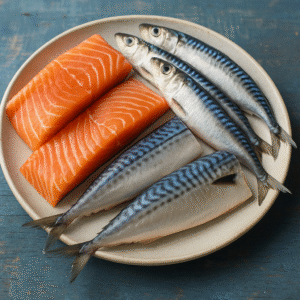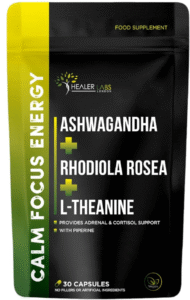The Importance of Supplements for Men's Health and Performance
Supplements tailored for men are essential tools for addressing nutritional deficiencies that can arise when a balanced diet is insufficient. These products encompass a variety of vitamins, minerals, herbs, amino acids, and other beneficial compounds that significantly contribute to overall health. They serve to enhance nutrient absorption and are particularly beneficial for men experiencing physical stress, following poor dietary practices, or leading hectic lifestyles. As awareness of prevalent global nutrient deficiencies increases, the necessity for these supplements becomes increasingly evident. For men grappling with low energy levels, inadequate recovery from workouts, or age-related health concerns, these supplements can provide crucial support. By incorporating them into their daily routine, men can maintain the energy, focus, and resilience needed to thrive.
A significant number of men do not obtain sufficient essential nutrients solely through their diets. This shortfall can hinder muscle growth, negatively impact mood, and compromise immune function. Men who engage in rigorous training, deal with stress, or are on a weight loss journey often require additional nutritional assistance. This is where supplements prove invaluable. They simplify the process of achieving health objectives without necessitating drastic lifestyle changes. Conveniently portable and easy to consume, supplements provide a practical approach to enhancing daily wellness and achieving optimum health.
Identifying Common Nutritional Deficiencies in Men's Diets
 Many men frequently lack crucial nutrients, including vitamin D, magnesium, and omega-3 fatty acids, all of which are vital for cardiovascular health, brain function, and bone strength. One contributing factor to this deficiency may be the dietary patterns commonly observed among men. Studies indicate that men tend to consume more meat and fewer fruits and vegetables than women, leading to a reduction in their intake of fiber, antioxidants, and essential vitamins and minerals typically found in plant-based foods.
Many men frequently lack crucial nutrients, including vitamin D, magnesium, and omega-3 fatty acids, all of which are vital for cardiovascular health, brain function, and bone strength. One contributing factor to this deficiency may be the dietary patterns commonly observed among men. Studies indicate that men tend to consume more meat and fewer fruits and vegetables than women, leading to a reduction in their intake of fiber, antioxidants, and essential vitamins and minerals typically found in plant-based foods.
The consumption of convenience foods, the demands of intense training, or restrictive dietary plans can further exacerbate nutrient deficiencies. High levels of physical activity and ongoing stress increase the body's requirement for recovery nutrients such as magnesium and omega-3s. Moreover, as men age, their bodies become less efficient at absorbing and utilizing nutrients.
These combined factors contribute to the prevalence of nutritional gaps. Supplements are an effective solution to bridge these gaps, ensuring the body remains strong, energized, and mentally alert throughout various life stages.
Enhance Your Health: Essential Supplements for Men's Optimal Performance
Daily Multivitamins: Fuel Your Energy, Hormonal Balance, and Lifelong Health
Daily multivitamins offer a convenient method for filling nutritional voids in men's diets. They are instrumental in maintaining strength, focus, and resilience. Due to time constraints and stress, men frequently skip meals or consume poor-quality food, draining their energy and impairing their immune systems.
A multivitamin specifically designed for men supports long-term vitality, fertility, hormonal balance, and overall wellness. High-quality multinutrients tailored for men address more than just basic nutritional needs; they target essential aspects such as hormone health, muscle function, and cognitive clarity. The BioCare Male Multinutrient features zinc, which is crucial for maintaining testosterone levels—an essential hormone impacting mood, stamina, muscle development, and sexual health. (Use code P8824 for a 10% discount on your entire order when registering your account).
Around the ages of 30 to 40, testosterone levels begin to decline, leading to symptoms such as fatigue, low mood, diminished focus, and reduced libido. B vitamins play a pivotal role in boosting energy production and combating tiredness, as well as helping to regulate stress and promote mental clarity.
Additionally, lycopene, an antioxidant, helps protect cells, particularly in the prostate, from damage and inflammation. Nettle root is beneficial for kidney function and urinary health, making it especially useful for men showing early signs of prostate enlargement. Due to busy lifestyles, many men find it challenging to consume a wide variety of nutrients daily, making a tailored multinutrient an effective way to cover the essentials.
Maximize Muscle Recovery with Protein Powders
Protein is vital for building, repairing, and maintaining muscle tissue, as well as playing a crucial role in hormone production, immune function, and promoting feelings of satiety. For men focused on enhancing fitness, optimizing recovery, or supporting healthy aging, protein powders provide a convenient and effective way to meet daily protein requirements.
Whey protein is a fast-acting option ideal for post-workout recovery, as it provides all nine essential amino acids, including a high concentration of leucine, which is critical for triggering muscle protein synthesis. This makes whey one of the most effective supplements available for promoting muscle growth.
Casein protein digests slowly, delivering a steady release of amino acids over several hours. This makes it an excellent choice for supporting overnight muscle recovery before bedtime and minimizing muscle breakdown during extended fasting periods.
For men adhering to vegan or dairy-free diets, plant-based protein options such as pea, rice, or hemp protein are excellent alternatives. When combined, these proteins can provide a complete amino acid profile, effectively supporting muscle growth and recovery just as well as animal-based sources.
Protein powders are particularly beneficial for men with hectic schedules or increased nutritional demands. They can be incorporated into smoothies, oatmeal, or shakes to boost intake without complicating meal preparation. This makes them a readily accessible option for anyone seeking to enhance strength, recovery, or body composition.
Choosing a high-quality protein powder free from added sugars or artificial fillers is crucial to ensure optimal results and minimize unwanted side effects. With consistent use, protein supplements can help men remain strong, energized, and prepared for the daily challenges of life and training.
Omega-3 Fatty Acids for Heart and Brain Health
Omega-3 fatty acids are essential fats that play a significant role in safeguarding heart health. They help reduce inflammation, lower blood pressure, and improve cholesterol levels. This is particularly important for men, as statistics indicate that they are at a higher risk of heart attacks than women, often at a younger age.
 Omega-3 fatty acids support the cardiovascular system by keeping blood vessels flexible and reducing plaque accumulation in the arteries. They also assist in regulating heart rhythms, which can lower the risk of potentially dangerous arrhythmias. Beyond their cardiovascular benefits, omega-3s enhance brain function, memory, and mood. Additionally, omega-3s can alleviate joint stiffness and enhance recovery post-exercise.
Omega-3 fatty acids support the cardiovascular system by keeping blood vessels flexible and reducing plaque accumulation in the arteries. They also assist in regulating heart rhythms, which can lower the risk of potentially dangerous arrhythmias. Beyond their cardiovascular benefits, omega-3s enhance brain function, memory, and mood. Additionally, omega-3s can alleviate joint stiffness and enhance recovery post-exercise.
Oily fish such as salmon, sardines, and mackerel are rich sources of omega-3s and should be incorporated into the diets of men regularly. Health professionals recommend consuming oily fish at least twice a week, yet many men fail to meet this guideline.
However, many men do not consume enough fish to fulfill their omega-3 requirements. Therefore, omega-3 supplements represent a practical solution, especially those containing EPA and DHA. Opting for a high-quality fish oil or algae-based supplement can effectively address this deficiency. Regular use of omega-3s can aid men in protecting their hearts, enhancing cognitive function, and supporting long-term health.
Vitamin D: Essential for Bone Health and Immune Function
Vitamin D is crucial for maintaining strong bones, ensuring optimal muscle function, bolstering the immune system, and regulating mood. Despite its importance, many men do not obtain adequate vitamin D through their diets or lifestyle. This deficiency often becomes more pronounced during winter months when sunlight exposure is limited, and men may also face unique risk factors. Some studies indicate that men are slightly more prone to vitamin D deficiency compared to women, potentially due to differences in body fat distribution, hormonal levels, sun exposure habits, and dietary choices. Men tend to store more fat in their abdominal region, where vitamin D can become trapped and less bioavailable.
The primary male sex hormone, testosterone, may also influence vitamin D metabolism, while estrogen enhances vitamin D activity in women. This hormonal disparity may further elucidate the increased risk of deficiency in men.
Additionally, men often spend less time outdoors or may wear clothing that limits sun exposure, hindering their capacity to synthesize vitamin D naturally through their skin. Furthermore, differences in dietary habits can contribute to lower intake of vitamin D-rich foods, including oily fish, eggs, and fortified dairy products.
For men working indoors or residing in northern climates, vitamin D supplements can be an effective approach to restoring healthy levels. Regular blood tests can help monitor vitamin D status and inform appropriate dosing. Maintaining optimal levels of vitamin D is vital for promoting stronger bones, enhancing muscle strength, and ensuring a robust immune response.
Magnesium: The Mineral for Energy and Stress Relief
Magnesium is indispensable for muscle function, energy production, nerve health, and achieving restful sleep. It plays a crucial role in modulating stress levels and preventing cramps, fatigue, and irritability. Despite its significance, many men do not consume adequate amounts of this essential mineral. While magnesium deficiency can affect anyone, research indicates that teenage boys and men over the age of 70 are more likely to experience low intakes. This may be due to poor dietary choices, reduced consumption of magnesium-rich foods, or age-related changes in nutrient absorption.
Magnesium is critical for converting food into energy and supporting protein synthesis, making it vital for muscle growth and recovery—particularly in active men. Insufficient magnesium levels can impair performance, prolong recovery times, and heighten the risk of injury. Furthermore, magnesium has a calming effect on the nervous system, aiding in stress reduction and enhancing sleep quality. Men experiencing high levels of stress, sleep difficulties, or undergoing intense training may benefit from increasing their magnesium intake.
Excellent sources of magnesium include leafy greens, whole grains, nuts, seeds, and legumes. However, many men fall short of their magnesium requirements, particularly those consuming a highly processed diet. In such instances, magnesium supplements offer an effective means to restore balance and promote overall wellness.
Creatine: Boost Your Strength and Muscle Mass
Creatine is one of the most extensively researched and effective supplements available for enhancing strength, power, and lean muscle mass. It is particularly favored by men who engage in weightlifting or high-intensity training, as it provides the energy needed for quick bursts of activity during short, explosive movements like sprinting or heavy lifting.
The body synthesizes creatine naturally in the liver, kidneys, and pancreas, but the majority of it is stored within the muscles. Supplementing with creatine increases these stores, enabling men to train harder, lift heavier, and recover more quickly between sets. Creatine not only enhances performance but also plays a pivotal role in muscle growth by improving training capacity, which stimulates greater muscle development over time. This makes it a popular choice for men aiming to increase size and strength in the gym.
As men age, muscle mass naturally declines—a process known as sarcopenia. This age-related muscle loss can lead to weakness, poor balance, and a reduced metabolic rate. Creatine supplementation may help slow this decline by preserving muscle strength and promoting muscle cell hydration, even among older adults. Furthermore, regular creatine use may enhance cognitive function, expedite recovery, and support cellular energy production. It is generally safe when used according to guidelines, although maintaining proper hydration is vital.
For men striving to maintain muscle mass, train intensively, or counteract age-related strength loss, creatine stands as a powerful ally in any supplement regimen. However, it is crucial to monitor intake, as excessive consumption can lead to kidney damage.
Support Muscle Recovery with BCAAs (Branched-Chain Amino Acids)
BCAAs consist of three essential amino acids: leucine, isoleucine, and valine. These amino acids are vital for promoting muscle repair and reducing fatigue associated with exercise. Since the body cannot synthesize BCAAs independently, they must be obtained through diet or supplements. BCAAs are absorbed directly by the muscles, bypassing the liver, which enhances their effectiveness.
Numerous men utilize BCAAs to enhance their training intensity and expedite recovery. They play a significant role in diminishing delayed onset muscle soreness (DOMS) following workouts. Additionally, BCAAs help prevent muscle breakdown during prolonged or intense training sessions, which is especially important for preserving lean muscle during periods of dieting or fasting.
Among the three, leucine is the most influential in stimulating muscle protein synthesis, signaling the body to initiate muscle repair and growth. BCAAs can be taken before, during, or after workouts, with many men opting to mix them into their water or shakes for convenience. For men who train frequently or lift heavy weights, BCAAs can help sustain performance and accelerate recovery between sessions.
Enhance Your Workout with Beta-Alanine
Beta-alanine helps delay muscle fatigue by increasing carnosine levels in the muscles. Carnosine serves as a buffer against acid accumulation during intense exercise. When engaging in strenuous workouts, the muscles produce lactic acid, leading to a burning sensation that can limit performance. Beta-alanine mitigates this burning sensation by neutralizing acidity, allowing men to push through more repetitions or sustain longer periods of effort.
Men who participate in high-intensity training or endurance activities frequently find beta-alanine beneficial. It improves stamina, power, and overall training volume. Research indicates that beta-alanine can prolong the time to exhaustion, enabling men to train longer before muscle fatigue sets in. The effects of beta-alanine are most pronounced when taken consistently over time, as carnosine levels in the muscles gradually increase.
It is worth noting that beta-alanine often produces a harmless tingling sensation in the skin, which many men report feeling in their faces or arms. Incorporating beta-alanine into a routine can be a powerful strategy to enhance performance and delay the onset of fatigue.
B Vitamins: The Essential Nutrients for Energy and Mood
 The B vitamins are crucial for supporting energy production, enhancing mood, maintaining brain health, and facilitating red blood cell formation. They are essential for daily functioning and overall vitality. For instance, vitamin B12 plays a pivotal role in DNA repair, nerve function, and enhancing mental clarity. Although it is primarily found in animal products such as meat, fish, eggs, and dairy, studies suggest that men are more likely to experience low B12 levels compared to women, even when consuming similar or higher amounts of meat.
The B vitamins are crucial for supporting energy production, enhancing mood, maintaining brain health, and facilitating red blood cell formation. They are essential for daily functioning and overall vitality. For instance, vitamin B12 plays a pivotal role in DNA repair, nerve function, and enhancing mental clarity. Although it is primarily found in animal products such as meat, fish, eggs, and dairy, studies suggest that men are more likely to experience low B12 levels compared to women, even when consuming similar or higher amounts of meat.
A significant study indicated that 25.5% of men had B12 deficiency, compared to 18.9% of women, which surprised researchers. Despite reports of higher meat consumption, deficiency remains prevalent among men, possibly due to genetic factors, gut health, or differences in how men absorb and utilize B12.
Symptoms of B12 deficiency can include fatigue, cognitive decline, mood disturbances, and nerve tingling. Many men may be unaware of their low levels. Older men, vegans, or those facing digestive challenges are at a heightened risk. Regular testing for B12 levels is advisable for these individuals to ensure adequate intake.
Other B vitamins, such as B6 and folate, also play critical roles in supporting brain health, cardiovascular function, and energy metabolism. Foods such as leafy greens, legumes, whole grains, and eggs are rich sources of these nutrients. When dietary intake is insufficient, supplements can effectively fill the gap. Men experiencing fatigue, brain fog, or low mood may greatly benefit from a high-quality B-complex supplement.
Adaptogens: Natural Stress Relievers for Everyday Balance
 Adaptogens are natural herbal substances that enhance the body's ability to adapt to stress and maintain balance under pressure. Ashwagandha and Rhodiola are among the most studied adaptogens, known for their ability to promote calmness, focus, and physical resilience. These herbs work by modulating cortisol levels, the body's main stress hormone, as high cortisol can deplete energy, mood, and immune function.
Adaptogens are natural herbal substances that enhance the body's ability to adapt to stress and maintain balance under pressure. Ashwagandha and Rhodiola are among the most studied adaptogens, known for their ability to promote calmness, focus, and physical resilience. These herbs work by modulating cortisol levels, the body's main stress hormone, as high cortisol can deplete energy, mood, and immune function.
Men frequently encounter chronic stress stemming from various sources, such as work pressures, financial responsibilities, or family obligations. This enduring pressure can adversely affect both mental and physical health. Stress in men may manifest as irritability, sleep disturbances, low libido, or fatigue. Adaptogens can mitigate these effects. For example, ashwagandha is known to support testosterone levels, improve sleep quality, and alleviate anxiety, while also enhancing strength and recovery from exercise.
Rhodiola is another powerful adaptogen that boosts endurance and mental clarity, helping to combat fatigue during demanding physical or mental tasks. Men balancing intense work commitments with rigorous gym routines may find that adaptogens assist in maintaining energy levels and emotional stability. Unlike sedatives, adaptogens help the body respond to stress more effectively, making them safe for regular use.
Adaptogens can be consumed in various forms, including capsules, powders, or teas, and most men tolerate them well when used according to recommended doses. For men seeking to remain sharp, calm, and energized amidst stress, adaptogens provide reliable and natural support.
Coenzyme Q10: The Energy Booster for Heart and Muscle Health
Coenzyme Q10 (CoQ10) is crucial for cellular energy production, particularly in high-demand organs such as the heart and muscles. It also functions as a potent antioxidant, shielding cells from oxidative damage and promoting long-term health and vitality. Men may specifically benefit from CoQ10 due to its contributions to heart health, fertility, and muscle function.
The heart requires a substantial amount of energy, and CoQ10 helps fuel this vital organ while protecting it from the detrimental effects of free radicals. Low levels of CoQ10 have been associated with an increased risk of heart disease. Supplementing with CoQ10 may assist in managing blood pressure and enhancing heart performance. Furthermore, men who take statins often experience muscle pain or weakness; CoQ10 may alleviate these side effects by restoring energy levels in muscle cells. Some studies suggest that CoQ10 can reduce muscle pain associated with statin use, helping men adhere to their cholesterol-lowering medications.
CoQ10 may also have a positive impact on male fertility. Oxidative stress can harm sperm cells, diminishing their count, quality, and motility. Research indicates that CoQ10 supplementation enhances sperm movement and concentration in men facing specific fertility challenges. As men age, their natural CoQ10 levels decline, which can negatively affect energy production, endurance, and recovery from physical activity.
CoQ10 may help mitigate some age-related declines by fostering energy production and minimizing cellular damage. Typical doses range from 100 to 200 mg daily, and men with health concerns should consult a healthcare provider before beginning supplementation. For men focused on enhancing heart health, energy levels, and fertility, CoQ10 presents a natural avenue for supporting long-term wellness.
Calcium: A Vital Nutrient for Bone Health in Men
Calcium is essential for maintaining strong bones, healthy teeth, proper nerve function, and effective muscle contractions. Although calcium is often associated with women's health, it is equally important for men, particularly as they age.
 Bone density typically peaks around the age of 30. Following this peak, men gradually lose bone mass, thereby increasing their risk of fractures and developing osteoporosis. Many men are unaware that they can also develop osteoporosis, which often goes undiagnosed until a fracture or injury occurs. Calcium plays a vital role in slowing this bone loss and maintaining bone strength. It also contributes to joint stability and posture as men age.
Bone density typically peaks around the age of 30. Following this peak, men gradually lose bone mass, thereby increasing their risk of fractures and developing osteoporosis. Many men are unaware that they can also develop osteoporosis, which often goes undiagnosed until a fracture or injury occurs. Calcium plays a vital role in slowing this bone loss and maintaining bone strength. It also contributes to joint stability and posture as men age.
Men who engage in weightlifting or intense training put additional stress on their bones and joints. Calcium helps the body withstand this strain. Dairy products, leafy greens, tofu, and fortified foods are excellent sources of calcium, yet many men still fall short, particularly those on restrictive diets. Vitamin D is fundamental for calcium absorption, so it is essential for men to ensure they are getting enough of both nutrients to support their bone health.
Additionally, weight-bearing exercises stimulate bone growth, making it beneficial to pair calcium intake with regular training for optimal results. Supplements can assist men in meeting their calcium needs when dietary sources are insufficient, particularly for those over the age of 50. Maintaining strong bones is crucial for enabling men to remain active, reduce injury risk, and improve mobility in later years.
Understanding Prostate Health: Essential Supplements and Foods for Men
As men age, prioritizing prostate health becomes increasingly crucial. Many men experience prostate enlargement, known as benign prostatic hyperplasia (BPH), which can lead to issues such as frequent urination, weak urinary flow, and disrupted sleep patterns. Specific supplements can help alleviate these symptoms and promote urinary health.
Saw palmetto is one of the most well-researched herbs for supporting prostate health, potentially easing urinary complications and reducing inflammation. Beta-sitosterol is another compound that has demonstrated promise in enhancing prostate health; like saw palmetto, it may improve urinary flow and decrease the frequency of nighttime urination. Integrating these supplements into a comprehensive approach to prostate health can provide men with essential relief from uncomfortable symptoms.
 Additionally, stinging nettle (Urtica dioica) is frequently utilized in conjunction with saw palmetto. It may assist in reducing the size of an enlarged prostate and alleviating related symptoms. Pumpkin seed extract is also beneficial in promoting urinary flow and is high in zinc, which protects prostate cells from oxidative damage.
Additionally, stinging nettle (Urtica dioica) is frequently utilized in conjunction with saw palmetto. It may assist in reducing the size of an enlarged prostate and alleviating related symptoms. Pumpkin seed extract is also beneficial in promoting urinary flow and is high in zinc, which protects prostate cells from oxidative damage.
Zinc is crucial for maintaining hormonal balance, as the prostate stores zinc, which may help prevent or minimize enlargement. Lycopene, a powerful antioxidant found in tomatoes, protects prostate cells from damage. Cooked tomatoes provide the most bioavailable form of lycopene, which can be obtained as a standalone supplement or as part of a comprehensive multinutrient designed for men’s health.
Selenium is another potent antioxidant that helps shield cells from damage and may contribute to a reduced risk of prostate cancer, while vitamin E offers additional antioxidant support, potentially decreasing the likelihood of cell damage linked to cancer and aging.
Promoting Prostate Health Through a Nutrient-Rich Diet
An individual's diet plays a pivotal role in maintaining prostate health, as certain foods provide vital nutrients that protect and nourish prostate tissue. Increasing intake of cruciferous vegetables, such as broccoli, cabbage, and cauliflower, can introduce compounds that may help slow the growth of prostate cells.
 Berries are packed with antioxidants that combat inflammation and support cellular repair. Nuts and seeds, such as walnuts, Brazil nuts, and pumpkin seeds, provide healthy fats and essential minerals like zinc and selenium.
Berries are packed with antioxidants that combat inflammation and support cellular repair. Nuts and seeds, such as walnuts, Brazil nuts, and pumpkin seeds, provide healthy fats and essential minerals like zinc and selenium.
Omega-3 fatty acids found in salmon and sardines help reduce inflammation and support both prostate and heart health. Phytoestrogens present in soy and legumes may assist in balancing hormones and lowering prostate cancer risk. Beans and lentils are also excellent sources of fiber, antioxidants, and hormone-balancing phytoestrogens.
Adopting a healthful diet coupled with targeted supplements can empower men to maintain prostate function and diminish future health risks. Men over 40 should remain vigilant regarding early symptoms and consult healthcare providers for personalized recommendations. Taking proactive steps now can help safeguard long-term vitality, comfort, and quality of life.
Tips for Selecting the Most Appropriate Supplements
Navigating the extensive world of supplements can be daunting, especially given the vast array of products available on the market. To effectively choose the right supplements, men should begin by assessing their individual health needs. This process involves identifying any nutritional deficiencies, health concerns, or fitness goals that may dictate specific requirements.
Consulting healthcare providers is a critical step in this process. A professional can offer tailored recommendations based on blood tests and comprehensive health assessments, ensuring that supplement selections are not driven by trends but rather customized to each individual's circumstances.
Prioritizing quality and safety is paramount when selecting supplements. Men should seek out products that undergo independent testing for purity and potency. Opting for reputable brands with transparent ingredient lists can help ensure that the supplements consumed are both safe and effective.
It is also essential to consider dietary restrictions or allergies when selecting supplements. For instance, men adhering to a vegan diet may need to explore plant-based protein sources or vitamin B12 supplements to meet their nutritional needs. By approaching supplement selection thoughtfully and seeking professional guidance, men can significantly enhance their health and well-being.
Awareness of Potential Risks and Side Effects Associated with Supplements
 While supplements can provide a multitude of health benefits, men must be aware of the potential risks and side effects associated with their use. Supplements are not without dangers, and improper use can lead to adverse health outcomes.
While supplements can provide a multitude of health benefits, men must be aware of the potential risks and side effects associated with their use. Supplements are not without dangers, and improper use can lead to adverse health outcomes.
A primary concern involves the risk of allergic reactions. Some supplements may include ingredients that can trigger allergies in certain individuals. Men should thoroughly review product labels and consult with healthcare providers to avoid any harmful reactions.
Interactions with medications require careful consideration as well. Some supplements can interfere with prescription medications, potentially reducing their effectiveness or leading to unintended side effects. To ensure safe and effective treatment plans, men should disclose all supplements they are taking to their healthcare providers.
Overdosing presents another significant risk, particularly with fat-soluble vitamins such as A, D, E, and K, which can accumulate in excessive amounts within the body. This can lead to toxicity and serious health complications. It is vital to adhere to recommended dosages and refrain from exceeding them without professional supervision.
By understanding these potential risks and approaching the supplement landscape with caution, men can minimize adverse effects while maximizing the health benefits of their chosen products.
Practical Health Tips for Men Who Use Supplements
- Incorporate whole foods rich in nutrients, such as leafy greens, oily fish, and nuts, into your diet.
- Stay adequately hydrated, as water facilitates the absorption and utilization of supplements.
- Engage in daily physical activity, as exercise enhances circulation and supports nutrient delivery.
- Ensure you get at least 7 hours of sleep each night to allow your body to repair and rejuvenate.
- Limit alcohol consumption and ultra-processed foods, as they can hinder nutrient absorption.
Empower Your Health: Take Control of Your Well-Being
While supplements are not a panacea, they can provide essential support for navigating modern lifestyles. When utilized wisely, they can help men maintain energy, strength, focus, and overall vitality.
Opt for high-quality products, practice consistency, and implement lifestyle changes that align with your supplement regimen. Small, daily actions can accumulate to yield significant health improvements.
Your Questions Answered: Common Inquiries About Supplements
What Are the Most Effective Supplements for Men's Health?
The most beneficial supplements for men typically encompass multivitamins, protein powders, omega-3 fatty acids, and testosterone boosters. Each of these supplements serves distinct health purposes, from promoting muscle growth to enhancing cardiovascular health.
How Can I Determine If I Require Supplements?
Assess your diet and consider your lifestyle, stress levels, and health concerns. Consulting a healthcare provider can help identify your specific needs and requirements.
Can Supplements Replace a Healthy Diet?
Supplements should act as a complementary measure, not a replacement for a nutritious diet. Obtaining essential nutrients from whole foods is vital, with supplements filling in any gaps.
Are There Risks Associated with Supplement Use?
Yes, potential risks include allergic reactions, interactions with medications, and the possibility of overdosing. It is essential to consult with a healthcare provider before incorporating any new supplements into your routine.
What Health Benefits Do Omega-3 Fatty Acids Provide for Men?
Omega-3 fatty acids promote heart health, reduce inflammation, and may enhance cognitive function, making them an essential component of men’s overall well-being.
How Do B Vitamins Contribute to Mood Regulation?
B vitamins, especially B12 and folate, are crucial for neurotransmitter function, which plays a significant role in mood stabilization and may help mitigate symptoms of depression.
How Can I Choose the Right Protein Supplement for My Needs?
Select a protein supplement based on your dietary preferences and fitness goals, ensuring it is of high quality and free from unnecessary additives.
Is It Safe to Take Multiple Supplements Simultaneously?
While many men can safely take multiple supplements, it is vital to consult with a healthcare provider to prevent potential interactions and ensure correct dosing.
What Are Adaptogens and How Do They Assist with Stress Management?
Adaptogens are natural substances that help the body cope with stress. They can lower cortisol levels and promote relaxation, thereby supporting overall mental health.
When Is the Best Time to Take My Supplements for Optimal Results?
Timing may vary; however, consuming specific supplements with meals can enhance absorption. Refer to product labels or consult a healthcare provider for tailored recommendations.
Connect with us on Facebook!
The Article: The Complete Guide to Supplements for Men: What to Take and Why appeared first on https://janestevensnutrition.com




Comments are closed